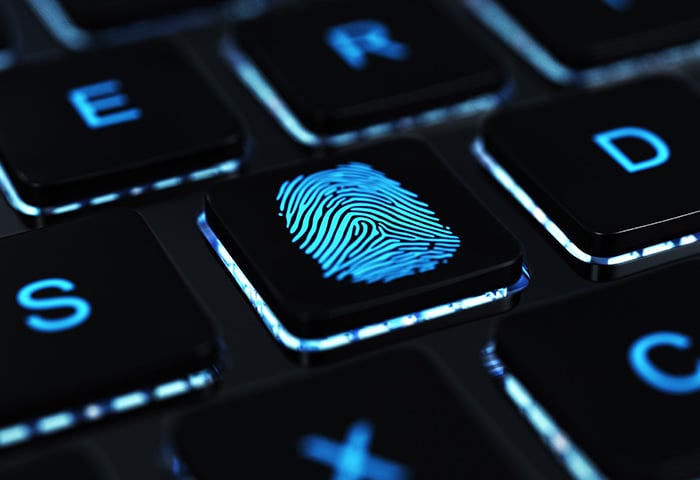What is identity theft?
Identity theft happens when your personal information is used to commit fraud or perpetrate other scams. With stolen personal information like your bank details, phone number, or other sensitive data, identity thieves can pretend to be you to purchase items, take out loans, or commit other forms of identity fraud.
Understanding how identity theft works and encrypting your data can keep you from becoming a victim. It’s important to be prepared in case it happens — if your identity is ever stolen, you’ll want to know what to do. Identity theft can ruin your credit rating and your reputation, so don’t spend too much time trying to confirm if and how you have been hacked — you need to act fast.
What to do when your identity is stolen
Your first priority if your identity is ever stolen is to protect yourself from fraud. You need to immediately secure your data and personal accounts, and then report the theft of your identity to the relevant authorities.
If you think your identity may have been stolen, here’s what you should do:
-
Change your passwords
If your accounts have been compromised, change your passwords immediately to re-secure them. Weak passwords are no match for the password cracking techniques hackers use these days, and they can offer an easy short-cut to identity theft. Create long and unique passphrases and use one of the best password managers to keep your accounts secure.
-
Freeze or cancel your credit cards
Notify your credit card companies right away if you suspect theft, then change the password to your accounts with a strong password. Keep an eye on your future statements, monitor your credit reports for suspicious activity, and shore up your email security in case that’s how your account was hacked.
-
Contact social media companies about your stolen identity
Most social media companies keep tabs on your digital identity. Contact their customer service, which should have an identity theft helpline for reporting and resolving security breaches. Then update your social media account’s security with two factor authentication.
-
Use cybersecurity software
Data breaches are increasingly common these days. A shield for document protection can tighten security by stopping your details from being collected (and lost), and keep your financial details under lock and key.
Along with the immediate actions you can take to secure your accounts, you should file an identity theft report with the Federal Trade Commission (FTC), file a police report, and notify the relevant credit bureaus. Here’s how.
How to report identity theft
To report identity theft, call the FTC’s identity theft helpline, or file a report online. The FTC’s mission is to protect consumers, so report the theft to the FTC (or the equivalent body in your area) if you suspect foul play. Then, report the theft to the police and alert a credit bureau.
If you’re in the UK, visit the Action Fraud website to file a report and get more information.
 The FTC identity theft report
The FTC identity theft report
An FTC identity theft report (also called an identity theft affidavit) shows the authorities and credit agencies that you’ve taken reasonable steps to prevent fraud. The FTC has identity theft protocols in place that activate when someone files an official claim.
-
Call the Federal Trade Commission’s identity theft number: 1-877-FTC-HELP, or file an FTC identity theft report online.
-
Provide as many details as possible. Be as specific as you can — the FTC will create a personal plan to help you recover your stolen identity.
-
Follow your personal FTC identity theft recovery plan.
-
Contact the police and credit agencies and report your identity theft.
You can also file an FTC fraud report if you think you’ve been a victim of a tech support scam, spear phishing attack, or some other type of scam. A fraud report helps the FTC monitor your details in case anyone tries to use them, and helps protect others from similar scams.

 How to file a police report for identity theft
How to file a police report for identity theft
You should only file a police report if you have concrete information about the theft, your name was used in a crime, or a business has asked you to file. Filing a police report for identity theft protects you in case your info is used by criminals in the future. Although it's difficult for police to catch online crooks and hackers, they’ll be able to help limit the impact of your identity theft.
Here’s how to report identity theft to police:
-
Go to your local police’s website or call them to process your claim. Have an ID or proof of address ready to prove you are who you say you are.
-
Have your FTC identity theft report details (or equivalent) ready. This will help the investigation move more quickly and smoothly.
-
Provide any evidence of the identity theft, such as any mysterious transactions on your statement, suspicious phone calls you’ve received, or online activity that isn’t your own.
-
Ask for a personal copy of the report for your own records. Having a record of an identity theft police report helps insure you against future fraud, and some credit bureaus even require a police report before beginning a review.
 Report identity theft to the credit bureaus
Report identity theft to the credit bureaus
There are three main credit bureaus in the US: Experian, TransUnion, and Equifax. Each bureau is a separate company, but each should share your claim with the other two. Reporting identity theft is free and will place a fraud alert on your credit reports for a year, protecting you from fraudulent charges or new lines of credit being put in your name.
-
Experian
Place a fraud alert with Experian online or call its identity theft helpline at 1-888 EXPERIAN.
-
TransUnion
Go to TransUnion’s fraud alert page or report the identity fraud at 1-800-680-7289.
-
Equifax
Place a fraud alert with Equifax online or call in to report a theft at 1-800-525-6285.
If you're really worried, consider signing up for a credit monitoring service that sends monthly or weekly credit reports. These more dedicated services aren't free, but they keep a close eye on your credit activity for possible identity theft.
When communicating online, consider using a VPN to talk and browse more privately. And get dedicated security software to protect yourself online and prevent identity theft.
Protect your identity with AVG BreachGuard
Without dedicated data security, your identity is vulnerable. A specialized data security tool can help you safeguard your data by providing password support and monitoring the dark web to see if your info is ever leaked.
AVG BreachGuard makes sure your personal accounts don’t get compromised by helping you remove any personal details that may have been exposed in a leak. Get AVG BreachGuard and start keeping your identity private, safe, and secure today.









/Signal-What-is-SQL-injection-Thumb.jpg)
/What-is-a-browser-hijacker-and-how-to-remove-them-Thumb.jpg)





